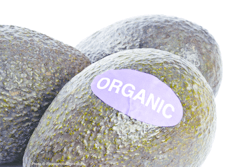The University of Hawai‘i at Manoa’s College of Tropical Agriculture and Human Resources (CTAHR) recently received a grant to study a high-tech new way to preserve food for storage and shipping, earning a three-year, $500,000 Improving Food Quality and Value grant through the USDA’s National Institute of Food and Agriculture.
The research project aims to address the loss of quality in food items due to freezing and thawing during storage and transportation by controlling the supercooling and ice crystallization of water using combined pulsed electric and magnetic fields. "Supercooling" refers to the process by which water temperature drops below the freezing point, but there is no transition to ice.
A portion of the grant includes work on a prototype freezer equipped with pulsed electric field and oscillating magnetic field generators. This proposed technology has the potential to ensure food quality and freshness during storage, which would have an enormous impact on the food industry. It would specifically benefit Hawai'i and the Pacific Basin by ensuring food security and sustainability, as well as provide new export opportunities for local farms and entrepreneurs.
“As long as the developed freezing technology is applied, the implemented supercooling stage of food materials, i.e., meat, fruits, fish, etc., can be longer, we anticipate,” said Dr. Soojin Jun. “We plan to investigate the max extension of the supercooling stage and its stability as well.” To read more, click HERE.















